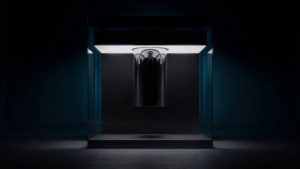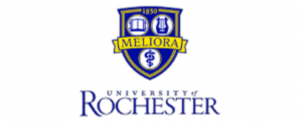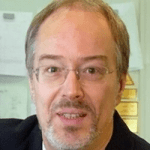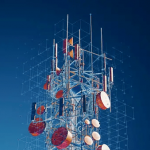Quantum News Briefs October 23: Racing to save our secrets from computers of the future, Chinese researchers announce record-breaking quantum teleportation achieved over metropolitan range, BTQ Technologies deepens quantum research & product commercialization expertise with addition of Dr. Peter Rohde + MORE

Quantum News Briefs October 23:
Racing to save our secrets from computers of the future
 Zach Montague, a Washington-based NYTimes columnist, is the author of the October 22 feature on quantum computing entitled “The Race to Save Our secrets from the Computers of the Future”. Quantum News Briefs summarizes.
Zach Montague, a Washington-based NYTimes columnist, is the author of the October 22 feature on quantum computing entitled “The Race to Save Our secrets from the Computers of the Future”. Quantum News Briefs summarizes.Despite a number of achievements by U.S. scientists, analysts insist that the nation remains in danger of falling behind — a fear reiterated this month in a report from the Center for Data Innovation, a think tank focused on technology policy.
Chinese researchers announce record-breaking quantum teleportation achieved over metropolitan range
 A team of scientists, led by Prof. Guangcan Guo and Prof. Qiang Zhou from the University of Electronic Science and Technology of China (UESTC) cooperating with Prof. Lixing You from the Shanghai Institute of Microsystem and Information Technology of the Chinese Academy of Sciences, have improved the teleportation rate to 7.1 qubits per second for the first time based on the “No. 1 Metropolitan Quantum Internet of UESTC”. This presents a new record for the quantum teleportation system over metropolitan range. Quantum News Briefs summarizes the SciTech October 19 announcement.
A team of scientists, led by Prof. Guangcan Guo and Prof. Qiang Zhou from the University of Electronic Science and Technology of China (UESTC) cooperating with Prof. Lixing You from the Shanghai Institute of Microsystem and Information Technology of the Chinese Academy of Sciences, have improved the teleportation rate to 7.1 qubits per second for the first time based on the “No. 1 Metropolitan Quantum Internet of UESTC”. This presents a new record for the quantum teleportation system over metropolitan range. Quantum News Briefs summarizes the SciTech October 19 announcement.
Demonstrating high-speed quantum teleportation outside of a laboratory involves a whole set of challenges. This experiment shows how these challenges can be overcome and hence it establishes an important milestone towards the future quantum internet,” said Prof. Qiang Zhou, who is the corresponding author of this work. The main experimental challenge in a real-world quantum teleportation system is performing the Bell state measurement (BSM).
In order to ensure the successful quantum teleportation and improve the efficiency of BSM, Alice’s and Bob’s photons need to be indistinguishable at Charlie after long-distance transmission in fiber. The team developed a fully running feedback system, which realized the fast stabilization of the path length difference and polarization of the photons.
The team employed both quantum state tomography and decoy-state methods to calculate the teleportation fidelities, which were well above the classical limit (66.7%), confirming that high-speed metropolitan quantum teleportation has been achieved.
The “No. 1 Metropolitan Quantum Internet of UESTC” is expected to develop a “high speed, high fidelity, multi-users, long-distance” quantum internet infrastructure in the future by combining integrated quantum light sources, quantum repeaters, and quantum information nodes. The team also forecasts that this infrastructure will further promote the practical application of quantum internet. Click here to read the complete SciTech article.
BTQ Technologies deepens quantum research & product commercialization expertise with addition of Dr. Peter Rohde

BTQ Technologies Inc., a global quantum technology company focused on securing mission critical networks, announced on October 19 the addition of Peter Rohde, an accomplished theoretical quantum computer scientist, to its world-class technical team.Quantum News Briefs summarizes.
Dr. Rohde, currently an Honorary Senior Lecturer at Macquarie University, and Associate Investigator at the ARC Centre of Excellence for Engineered Quantum Systems, is renowned for his deep understanding of optical quantum computing, quantum networking and the economics of quantum technology.
While quantum advantage remains a long-term target for most, its implications for information security are relevant today,” said Peter Rohde. “I am excited to work for BTQ, a company that operates at the intersection of two industries where I’ve spent the majority of my career: quantum computing and cryptography. I am excited to work on research where outcomes have immediate relevance as we prepare ourselves for the onset of the quantum era.”
TQ was founded by a group of post-quantum cryptographers with an interest in addressing the urgent security threat posed by large-scale universal quantum computers. With the support of leading research institutes and universities, BTQ is combining software and hardware to safeguard critical networks using unique post-quantum services and solutions. Click here to read the announcement in-entirety.
UofRochester researchers developing quantum photonic chips to replace gyrocopes in drones
 Researchers at the University of Rochester are developing photonic chips that could replace the gyroscopes currently used in unmanned aerial vehicles or drones, enabling them to fly where GPS signals are jammed or unavailable. Quantum News Briefs summarizes the October 15 SciTechDaily announcement.
Researchers at the University of Rochester are developing photonic chips that could replace the gyroscopes currently used in unmanned aerial vehicles or drones, enabling them to fly where GPS signals are jammed or unavailable. Quantum News Briefs summarizes the October 15 SciTechDaily announcement.
Using a quantum technique called weak value amplification, the scientists aim to provide the same sensitivity level of bulk optical gyroscopes on small, handheld photonic chips, potentially transforming navigation for drones.
Jaime Cardenas, an associate professor at the Institute of Optics, received a new National Science Foundation grant to develop the chips through 2026. Cardenas says the optical fiber gyroscopes used in the most advanced drones today contain spools of fiber several kilometers long or have limited dynamic range.
According to Cardenas, weak value amplification provides advantages over traditional methods because it boosts the signal of an interferometric measurement without the cost of amplifying several forms of technical noise. However, previous demonstrations of weak value amplification have required complex lab setups with precise alignment; Cardenas strives to implement weak value amplification on a tiny photonic chip with a high-quality factor ring resonator. Click here to read ScitechDaily article in-entirety.
Sandra K. Helsel, Ph.D. has been researching and reporting on frontier technologies since 1990. She has her Ph.D. from the University of Arizona.



















